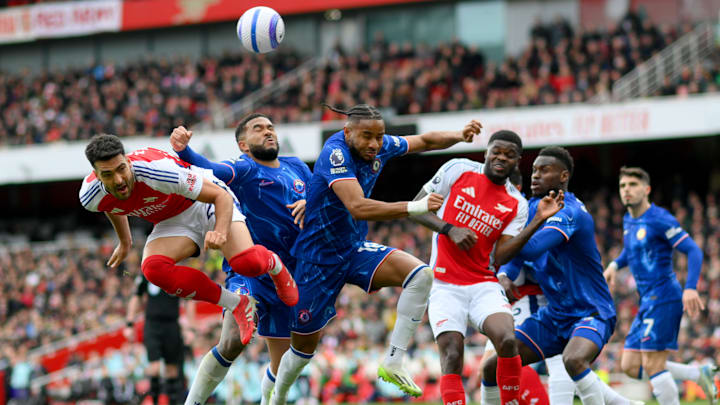Negative #1: Gabriel Martinelli's rust

Call it rust, call it lack of confidence. Call if anything you like, but the plain fact is Martinelli resembles a shell of the player who once looked like a star in the making.
It wasn't so long ago the left-sided forward would have been considered the most naturally talented finisher in Arteta's squad. A few injuries later and Arteta's apparent tactical preference for Leandro Trossard in some instances, have left Martinelli rash and anxious in front of goal.
He's snatching at chances. Opting more for power than precision. You can understand the thinking. Martinelli wants to knock the barriers between now and his best form down with a crash, bang and a wallop.
The problem is a hit and hope strategy rarely works. That's where the hope part comes from. True finishers deal more in certainty.
Martinelli would do well to remember the value of assurance. He can look no further than his former interim manager and Invincibles alum Freddie Ljungberg for inspiration.
Lots of things made Ljungberg a special player. Things like exceptional energy levels, a commendable work ethic, intelligent appreciation of space and perfect timing.
Those are all fine qualities, but Ljungberg's true value came from his calmness when presented with a scoring chance. All of those around him may have become frantic when the ball entered the decisive area of the pitch, but the game slowed down for Freddie in those moments.
It's why his first touch rarely let him down. Why he didn't often thrash at the ball, nor try and get too cute to wrong-foot a goalkeeper.
Instead, Ljungberg usually chose the most efficient way to put the ball in the net. There's a lesson there for Martinelli, who can still be the goal threat Arsenal need at home and in Europe.
Thankfully, the Gunners are able to rely on an old faithful to turn chances into goals.
Positive #2: Arsenal's set-piece magic returns

It's strange what you miss when it's gone, but Arsenal scoring from a corner again was a welcome, but curious relief. There's always been something a little uncomfortable about watching Arsenal play for set-pieces, surround and block goalkeepers and rely on thumping headers for goals.
That uneasy feeling probably stems from years of being on the wrong end of similar treatment from the Stoke City's and Bolton Wanderers' of this world. The footballing purist in all of us, who gorged for years on the unrelenting (and probably lopsided) artistry of the Arsene Wenger era, has to wince at watching a convoy of red shirts flank and close in on a hapless keeper.
Yet, there's that other, less-than-pure, part of football fandom. The part that says cry me a river, Chelsea. Deal with it. Get over it. We won by playing to our strengths.
Like it or not, the strength of this particular Arsenal team is still making maximum use, or close to it, of dead-ball situations. That requires disruptors in the box, accurate deliveries and tall players ready to attack the ball in the air.
The combination isn't going to sit alongside Jack Wilshere's goal against Norwich in 2013 (treat yourself), but it is effective. So much so, Merino's header against Chelsea extended a lengthy scoring run from corners that began last season, per OptaJoe.
"Since the start of last season, Arsenal have scored more goals from corners than any other Premier League side (27). 11 of those have opened the scoring, which is also a league-high total in this period. Headstart"OptaJoe
Here's the ugly truth. Arsenal's knack for snatching goals from set-pieces gives Arteta's team a chance in any game. It's a not-so subtle warning to Real, who ought to remember many a cup tournament has been won by nodding in a few corners and parking the bus.
Arsenal will likely need to do both against Champions League royalty because there's still a worrying drift from open play in attacking areas.
Continued on the next slide...
